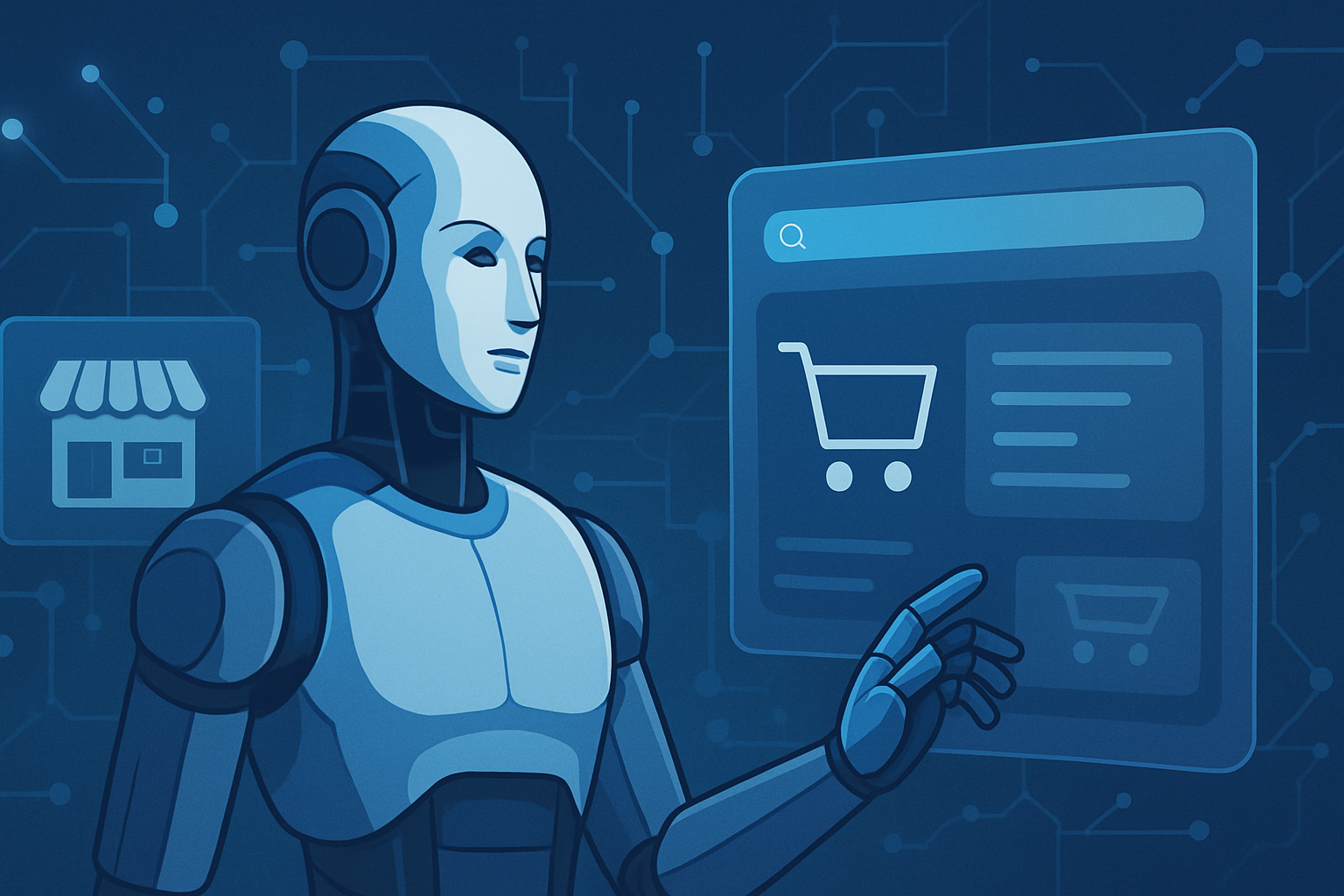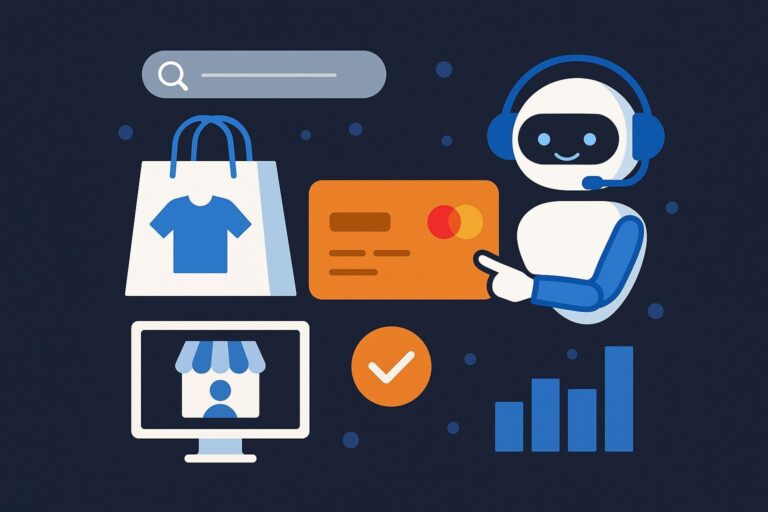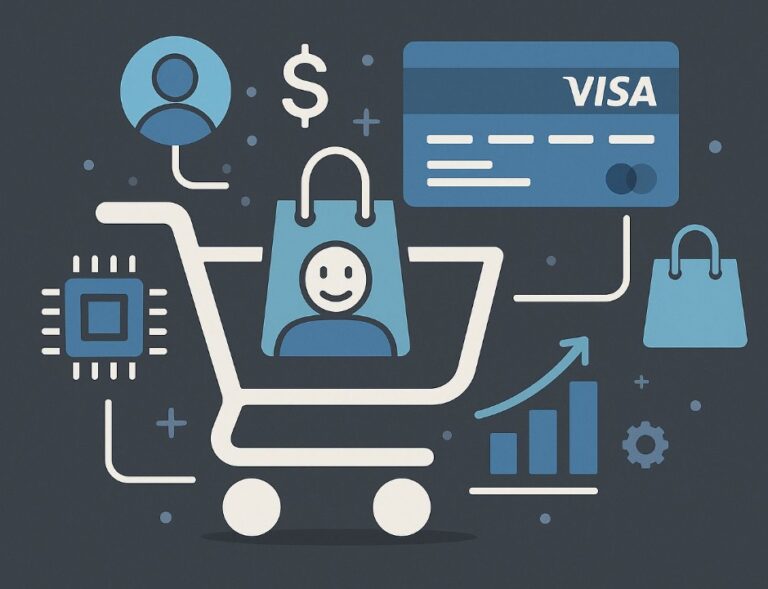It is painfully clear that online shopping has lost its charm. Endless options, 4-step checkouts, and relentless upsell offers make online shopping more exhausting than enjoyable. In fact, according to Criteo, 76% of people find it boring, 78% feel overwhelmed with the number of choices, and 22% go as far as to call it a chore—much like dragging yourself to the market on a Sunday morning.
But what if all that friction could disappear? What if online shopping became as fun, simple, and easy as it once was? Agentic commerce promises to do all that and more, offering a revolutionary future for both buyers and sellers. But what is agentic commerce and how can it help? Let’s find out!
What Is Agentic Commerce?
Agentic commerce, or agentic shopping, is an online shopping model where autonomous AI agents shop on your behalf. Instead of reading reviews, browsing product pages, and filling out checkout forms, you simply tell it what you need, and your AI agent:
- Browses the web
- Compares the products
- Presents you with the best finds
- Buys the thing you need
By analyzing data much faster than any human can, whether that’s product specifications, user reviews, or price, these agents are able to finalize the purchase in mere minutes.
How Does Agentic Commerce Work?
The idea behind agentic commerce is to shift from manual shopping to a radically simplified, hyper-personalized, and much faster shopping experience without decision fatigue or other associated issues. To achieve that, AI agents must operate independently from people.
To function autonomously, we must feed the AI agents with the required data, such as budget, preferences, interests, habits, etc., so that AI agents can make “aware” decisions.
For it to be possible, AI agents must be powered by large language models. They must possess:
- Natural language processing capabilities to understand your request
- Machine learning capabilities to predict your needs based on your preferences, intent, and past behaviour
- Real-time data analytics to compare prices, reviews, specs, and stock
However, for the agents to actually transact, they must communicate with third-party systems, like ecommerce platforms. This is where APIs come into play. APIs allow the agents to fetch product data, compare prices, check stock, and complete the purchase, without any intervention from the user.
How Do AI Agents Handle Payments?
The ultimate goal of agentic commerce is for agents to take over every part of the online shopping journey, including the payment, but how do we do that without compromising your sensitive data?
To prevent data theft, AI agents rely on tokenization, a process that replaces your actual payment details with a unique digital token. This token cannot be reverse-engineered, meaning it can’t retrieve your data even if it’s intercepted. It can only be used to authorise a transaction.
Payment processing networks like Visa and Mastercard are already making moves in this field.
Visa’s Intelligent Commerce framework launched on June 2nd, 2025, enabling AI-powered commerce across Pacific Asia, while Mastercard launched their Agent Pay technology on April 29th.
What Are the Benefits of Agentic Commerce?
Having an AI assistant handle shopping for you may seem like a convenient time-saving tool, but in reality, there’s much more to unfold, whether you’re a consumer or a brand.
For ecommerce brands, integrating agentic commerce capabilities into your workflows can help improve:
- Inventory management: Automating tasks such as inventory management and order processing (between you and your suppliers) can reduce manual workload, save time, minimize errors, and cut operational costs.
- Decision-making: By analyzing your data, AI agents can provide actionable insights into your customers’ behavior, allowing you to adjust your marketing strategies, supply chain decisions,, product development, etc.
- Engagement and conversion rates: AI agents can deliver personalized product recommendations and promotions that can boost engagement and conversion rates by analyzing customer behavior.
- Pricing strategy: Again, by analyzing customer behavior and data from previous years or quarters, as well as current market trends, AI agents could optimize your pricing strategy to drive more sales.
Here’s an example. Let’s assume you’re running a seasonal business. By analysing the data, both from sales and the supply chain, your AI agent could devise a strategy that would allow you to source the products when they’re at their lowest price, stock up for the in-demand months so you don’t end up with a depleted inventory, and optimize your pricing strategy to beat out the competition while still remaining profitable.
What Are the Benefits for the Consumers?
If you’re a shopper, the main benefits remain quite similar—you could save time and money—only through slightly different channels.
Say you’re looking to buy a gift for your kid. You want to buy them a PC so they can play their favorite game. The problem is, you don’t know anything about PCs, and finding the correct one would take days. On the other hand, you could simply instruct your AI agent to find you a PC under X amount of dollars that can run your kid’s favorite game, and it would present you with the best options in minutes. All you’d have to do is authorize the payment.
What Are Some Current Applications of Agentic Commerce?
Speaking about benefits is all fine and dandy, but does this functionality exist today, or are we speaking in hypotheticals? Well, a little bit of both.
For instance, Amazon has launched a feature called “Buy for Me”, which allows its users to purchase products from third-party websites directly through Amazon’s AI agents, even if the product can’t be bought on their platform. This allows Amazon to attract and retain even more users on its platform.
Speaking of Amazon, Alexa+, their upgraded voice assistant, now comes with agentic AI capabilities that allow it to perform multi-step tasks autonomously. For instance, with Alexa+, you could book reservations in your favorite restaurants or automate monthly grocery shopping because Alexa+ can interact with other platforms and services like Whole Foods Market or Ticketmaster.
Aside from Amazon, OpenAI’s Operator can also perform autonomous tasks by navigating through web browsers to perform tasks we just discussed, and Walmart is developing its AI shopping agent that would allow its users to automate the basic tasks like reordering groceries or automatically filling up a basket based on your requests.
Conclusion
With AI agents poised to handle everything from product sourcing and discovery to secure payments, the entire ecommerce experience is about to undergo an immense transformation. As the technology matures, with advancements from Visa, Mastercard, Amazon, and OpenAI, it’s no longer a question of if—it’s a matter of when agentic shopping becomes the norm.




